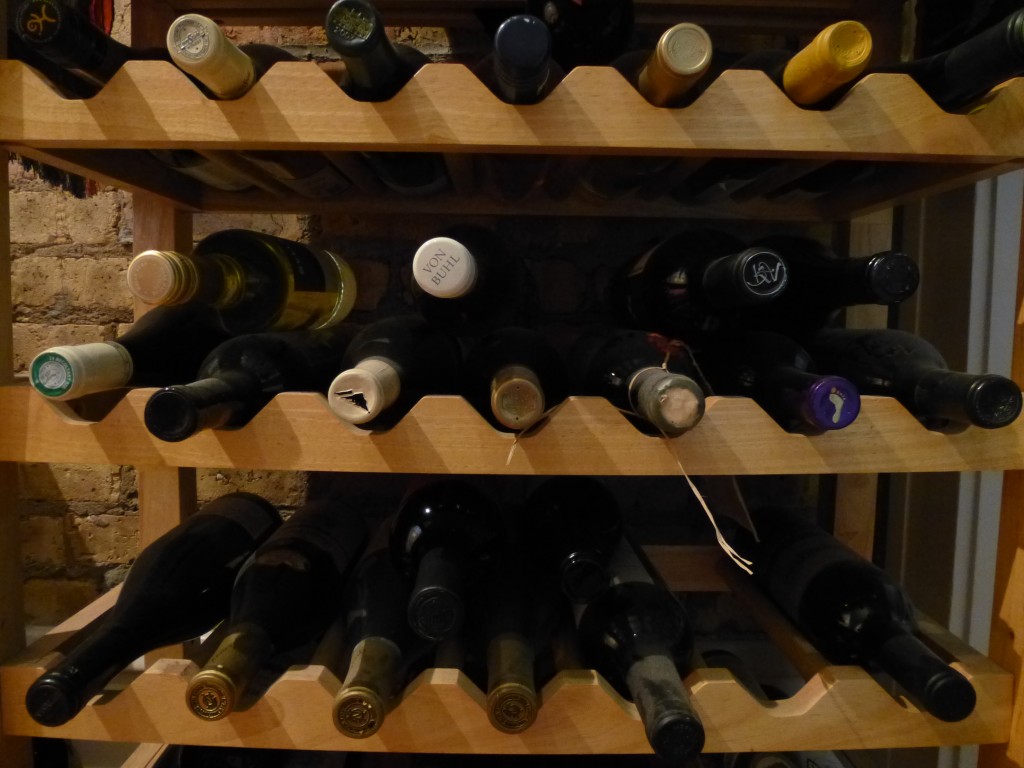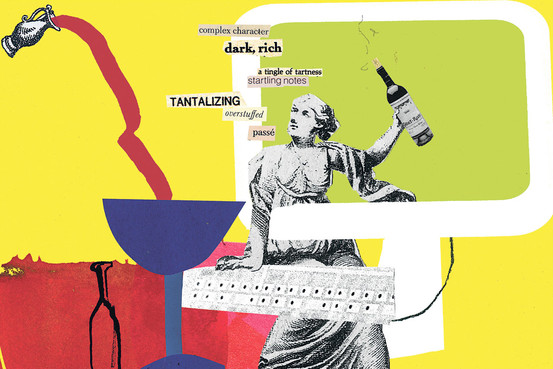Is Older Better?
 When I see an older bottle of wine, I usually can’t help but feel impressed by its age and desirous of sampling the liquid inside. Older does not usually mean better, however. Most wines should be consumed shortly after you purchase them, especially if you, like me, lack a uniformly dark and cool space in which to lay down a few bottles.
When I see an older bottle of wine, I usually can’t help but feel impressed by its age and desirous of sampling the liquid inside. Older does not usually mean better, however. Most wines should be consumed shortly after you purchase them, especially if you, like me, lack a uniformly dark and cool space in which to lay down a few bottles.
But every once in a great while, the opportunity arises to try a wine that has been aged properly, and by all means, you should take advantage of that opportunity. I remember dining at Aureole in Las Vegas with some friends a few years ago, and I was having trouble wading through the hundreds and hundreds of wines on the list. Then I spotted an Austrian Riesling that was about 10 or 15 years old.
Only a handful of whites can age well, but trusting that a wine-focused restaurant like Aureole would provide optimum conditions, I took a risk and ordered it. My friend took a sip, and though she wouldn’t profess to know a lot about wines, she always seems to be able to encapsulate the character of wine with just a word or two (as a blogger seemingly incapable of writing posts of fewer than 500 words, that’s something I envy). She said, “This wine tastes wise.” And so it did. Not big or flashy, but well-balanced and smooth, with impressive depth of flavor. I can’t imagine having an experience like that with a wine just a year or two old.
Frequently, older wines will also go through more of a change in the glass as they breathe. Sometimes this can be problematic. A few years ago, my father gave me several bottles of 1975 Inglenook Charbono, and even then, you had to drink the wine within about five minutes of opening the bottle. After that, whatever fruit and structure that remained simply fell to pieces, resulting in a drinkable but flabby, watery wine. This wine has aged too long.
More recently, I received a 2003 Banfi Chianti Classico Riserva from a friend with a well-constructed wine cellar in her basement. Because it had aged in the proper conditions, it remained in excellent shape. But I didn’t think so at first — the aroma was fruity and meaty, and though the wine still felt tight, with red fruit and iron flavors, I felt flab in there as well. After 20 minutes or so, the wine had a chance to unwind and pull itself together. The flab disappeared, replaced by some pleasantly dusty tannins, deeper fruit and some real structure. After slumbering so long, the wine just needed a chance to wake up and remember who it was.
I don’t advocate aging wines on purpose unless you have one that needs to be laid down and you have a properly dark and cool place to do so. It’s too easy to simply let bottles collect dust. Before long, they’re too special to open, and then they just die a slow death on the rack. But if you do have a chance to taste a properly aged wine, don’t pass it up. And don’t decant it. You wouldn’t want to miss out on how the wine changes in the glass by over-aerating it in a decanter.
Most important, if you don’t have place in your basement to age wine, don’t age wine. Drink it now! It won’t taste any better tomorrow than it does today.





